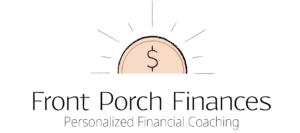Building an emergency fund is crucial for financial stability. I believe it is the first and one of the most important steps of personal finance. I started with a $1,000 emergency fund back in 2014 and now 10 years later my emergency fund is $10,000. Since I have established these funds I have never actually had to use them but I have peace of mind knowing they are there if necessary.
So you are ready to get that emergency fund but now sure how what to do now? Here are 15 ways to start saving for your emergency fund:
- Set Clear Goals: Define the amount you want to save for your emergency fund. It’s typically recommended to aim for 3 to 6 months’ worth of living expenses but for many who aren’t homeowners $1-2K may be enough.
- Create a Budget: Track your income and expenses to identify areas where you can cut back and allocate more towards savings.
- Automate Savings: Set up an automatic transfer to your savings account each month. Treating savings like a fixed expense ensures consistency.
- Cut Unnecessary Expenses: Review your monthly expenses and eliminate non-essential items. This could include subscriptions, dining out, or impulse purchases.
- Side Hustle: Consider taking on a part-time job or freelancing to increase your income specifically for your emergency fund.
- Sell Unused Items: Declutter your home and sell items you no longer need. Use the proceeds to fund your emergency savings.
- Cook at Home: Eating out can be a significant expense. Cooking at home is not only healthier but also more cost-effective.
- Comparison Shopping: Before making a purchase, compare prices from different retailers to ensure you’re getting the best deal.
- Use Cashback and Rewards: Take advantage of cashback programs and rewards from credit cards to supplement your savings.
- Negotiate Bills: Contact your service providers to negotiate better rates for utilities, insurance, or any other recurring expenses.
- Emergency Fund Jar: Start a physical or digital jar to collect spare change. Over time, this can add up to a significant amount.
- Delay Gratification: Before making non-essential purchases, give yourself time to think. Delaying gratification can help you avoid impulse spending.
- Review and Adjust: Regularly review your emergency fund and adjust it as needed. Life circumstances and expenses may change, requiring adjustments to your savings plan.
- Stay Consistent: Building an emergency fund is a marathon, not a sprint. Stay committed to your savings plan even during challenging times.
Remember, the key is consistency and discipline. By implementing these strategies, you can gradually build a solid emergency fund to provide financial security in unexpected situations.

